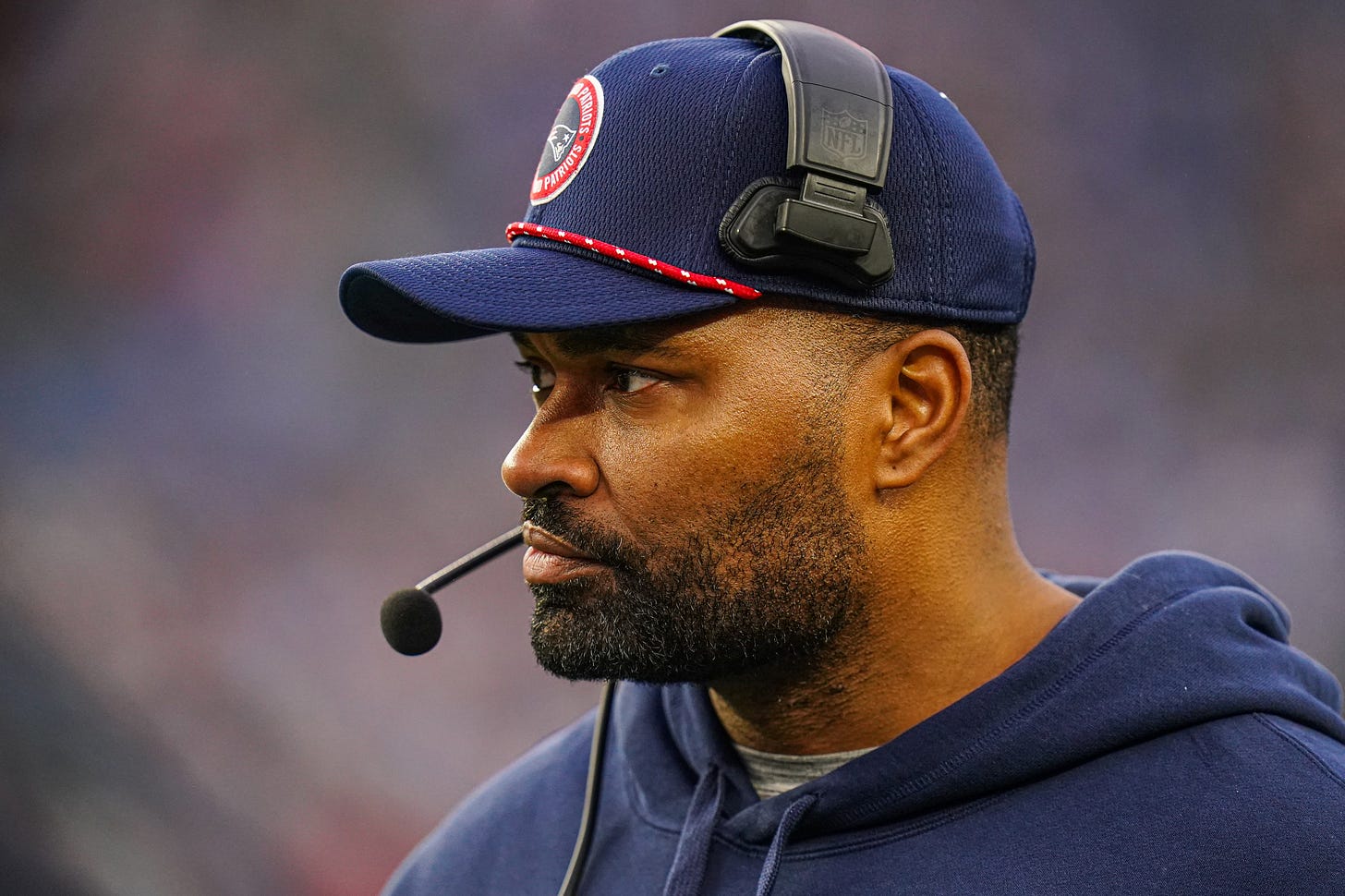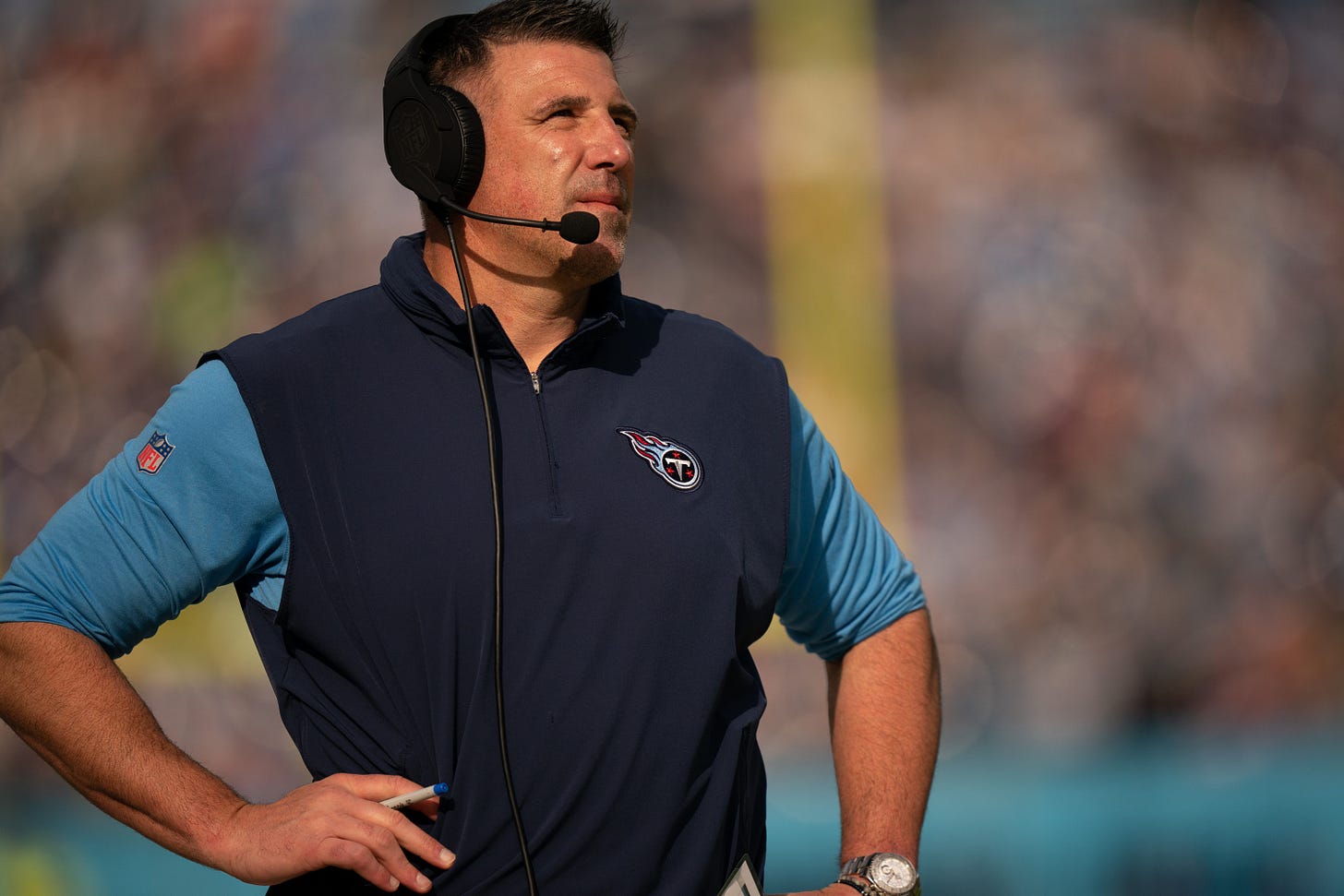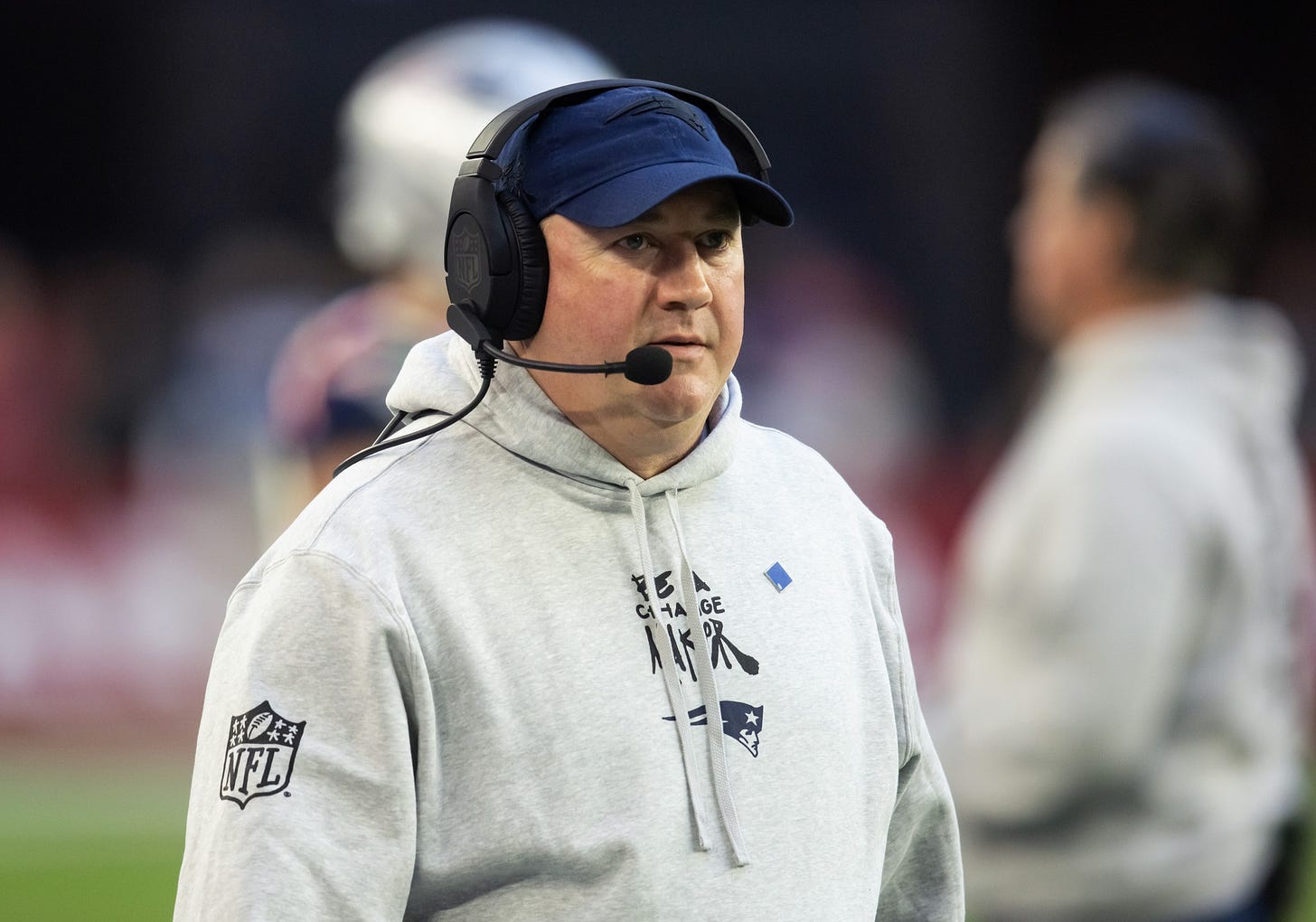Robert Kraft Chooses Himself over Drake Maye and the Patriots Future
Can Mike Vrabel be the answer?
After a challenging season, the New England Patriots made a surprising and controversial move: dismissing first-year head coach Jerod Mayo. This decision comes despite Mayo's efforts to lead a team that fought hard in the face of adversity, even with limited talent on the roster. At the heart of this debate lies a critical question—did Robert Kraft prioritize personal comfort over the future of the franchise and the development of rookie quarterback Drake Maye?
If NFL owners were held to the same level of accountability as GMs or coaches… this would be a fireable offense.
Jerod Mayo’s team showed resilience throughout the season, refusing to give up even when losses might have secured a higher draft pick. More importantly, Mayo built a coaching staff that was designed to nurture Maye’s potential. Offensive coordinator Alex Van Pelt and senior offensive assistant Ben McAdoo, while not groundbreaking names, brought valuable experience in developing young quarterbacks. Under their guidance, Maye began finding his footing in the NFL. Stability and continuity in this system were key to fostering his growth.
Subscribe to finish this post!
However, Kraft abruptly reversed course, firing Mayo and dismantling the developmental framework that had started to take shape. This decision directly contradicts Kraft’s earlier messaging that he understood the growing pains of a rookie head coach and a rookie quarterback. Mayo was supposed to be the heir to the Belichick dynasty, and Kraft had publicly committed to giving him time to grow into the role.
Sunday, Kraft threw that all out the window.
Reports suggest that Kraft’s motivation for this move is his desire to hire former Patriots player and ex-Tennessee Titans head coach Mike Vrabel. Vrabel, known for his no-nonsense attitude and ability to inspire his teams, is an intriguing choice. He’s tough, straightforward, and knows how to rally his players. To be honest, he's my kind of coach. But when it comes to quarterback development, Vrabel’s track record raises significant concerns.
During his time in Tennessee, Vrabel worked with a revolving door of quarterbacks, including Marcus Mariota (No. 2 overall pick), Blaine Gabbert, Malik Willis (3rd Rd pick), and Will Levis (2nd Rd Pick). The only notable success story was Ryan Tannehill, but even that came with a caveat—Tannehill was already a fully developed NFL quarterback when he joined the Titans. Vrabel’s coaching staff played no role in molding Tannehill’s skill set; they simply adapted the system to the player he already was. The bottom line is this: none of the young quarterbacks under Vrabel’s watch made meaningful developmental strides.
This raises a critical issue: why tie Drake Maye’s future to a coach who lacks a proven ability to develop young quarterbacks? Drafting Maye as the franchise quarterback was a significant investment, and his success depends on being surrounded by the right coaching staff. While Vrabel brings toughness and leadership, his skill set doesn’t align with the team’s immediate needs. This mismatch could hinder Maye’s growth and stall the Patriots’ long-term plans.
The decision also reflects a troubling trend of prioritizing familiarity and nostalgia over objective decision-making. Kraft’s preference for a former Patriots player like Vrabel seems to have outweighed the need for a quarterback-focused program. If NFL owners were held to the same level of accountability as general managers or coaches, this would be a fireable offense.
Although Alex Van Pelt may not have been a groundbreaking offensive coordinator in New England, he provided stability and direction for Maye during his rookie season. The Patriots needed another year in the same system to build on the progress they had already made. Instead, Kraft has pressed the reset button, leaving the franchise in a precarious position.
Tying Drake Maye’s development to Mike Vrabel is a high-risk gamble. If Vrabel struggles to assemble a staff capable of nurturing Maye’s talent, the Patriots could find themselves in an even deeper rebuild, squandering the potential of a franchise quarterback. For a team trying to navigate the post-Belichick era, this decision feels shortsighted and risky.
Robert Kraft’s decision will have far-reaching implications for the Patriots. The next era of the New England Patriots hinges on Drake Maye’s success, but without the right support system, even the most talented quarterbacks can falter. By targeting a coach with little history of quarterback development, Kraft is risking the future of his team on a decision rooted in nostalgia rather than strategy. This move may reflect Kraft’s comfort with a familiar face, but it leaves the future of the team—and its young quarterback—hanging in the balance. If this gamble doesn’t pay off, the Patriots could find themselves in an even deeper rebuild, searching for answers and leadership in a league that is unforgiving of missteps.







